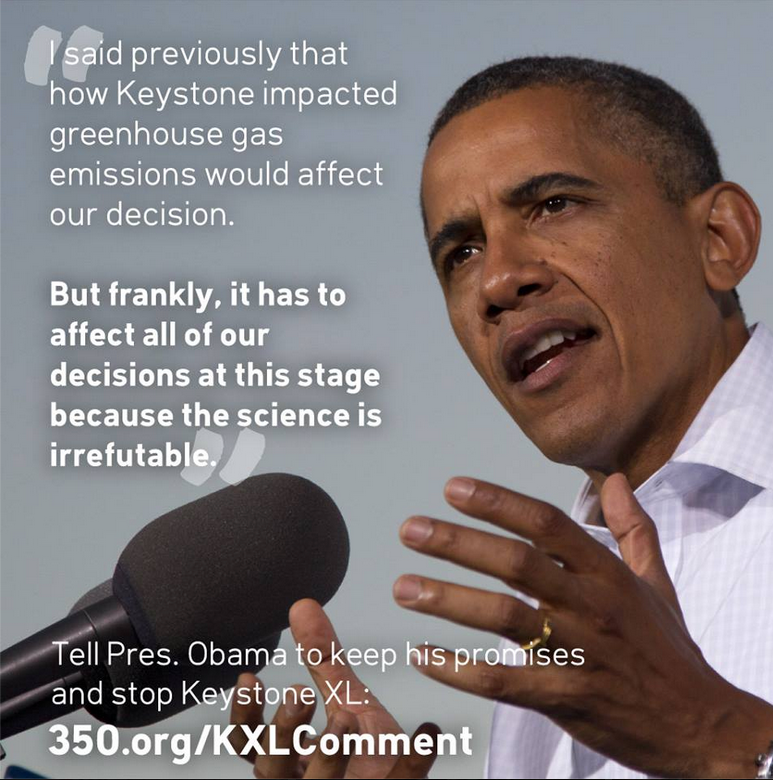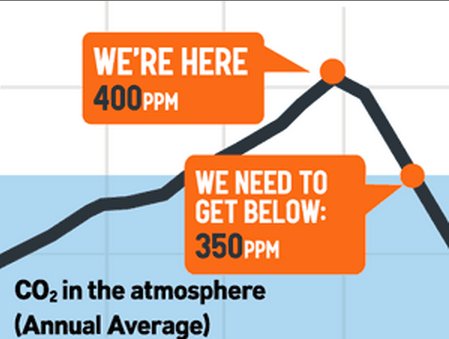Senators Boxer and Whitehouse held a press conference today to "share dramatic new information that will shine a spotlight on the health impacts of tar sands oil - health impacts that are already being felt in communities exposed to one of the filthiest kinds of oil on our planet." (Link to Boxer's statement as prepared for delivery.) The senators are rightfully concerned that the "health impacts of tar sands oil are being ignored." They want to connect the dots between tar sands and health risks "from the extraction to the transport to the refining to the waste disposal."
In a letter to Secretary Kerry, Sen. Boxer and Sen. Whitehouse ask for an "immediate and comprehensive study on the human health impacts of tar sands and the proposed pipeline." The senators state how the Final Supplemental Environmental Impact Statement is "woefully inadequate regarding human health impacts," and "peer reviewed research on these issues [should be] fully considered before any decision is made on the Keystone XL pipeline."
While the XL pipeline impacts will affect everyone, as I wrote about earlier this month, Racist 'Sacrifice Zones' With XL Pipeline are Grounds Alone for Rejecting Permit, yet the harm to people's lives is an issue missing from the debate on whether to approve the pipeline:
The public debate whether President Obama should approve Keystone XL pipeline is focused on the salient impacts to climate change, natural resources and wildlife. What is missing from this debate is the overriding issue of how does the pipeline directly harm people? Under the law, this is key to any decision. The pipeline should be rejected because it creates (or expands) sacrifice zones for Indians, other minorities and low-income communities. This violates the legal mandate of compliance with environmental justice principles that the State Department must consider when evaluating whether approving the pipeline is in the national interest, a process which is now underway.
The XL has 3 sacrifice zones: First Nation communities in Canada, U.S. tribal communities, and West Port Arthur, which is 95% African American. The Senators cover briefly two of these sacrifice zones.
Boxer and Whitehouse presented a clear picture of how communities at each step of the "toxic tar sands oil process – from the extraction to the transport to the refining to the waste disposal – will be impacted."
Dr. John O'Connor from Alberta, Canada will address how his patients in First Nation communities, located downstream from the major tar sands extraction site, have faced increased cancer rates and other health issues. Tar sands are then processed after extraction. "Dr. Stuart Batterman, a Professor from the University of Michigan, will tell us about his research which found significantly higher levels of dangerous air pollutants and carcinogens downwind from a tar sands refinery near Edmonton, Alberta." Tar sands are then to be transported via the XL pipeline through communities in 6 states with environmentally sensitive areas, and the senators note the harm and difficulty of trying to clean up a spill. More than 3 years later, the Kalamazoo River in Michigan is still not cleaned up from the tar sands oil spill in 2010. "One resident living near the Kalamazoo River had to abandon her home because the stench from the spill made her feel dizzy and nauseous - classic signs of acute exposure to tar sands oil. Another resident who was pregnant reported having trouble breathing. "My eyes were burning, and my nose was burning. It smelled like a diesel tanker had turned over in front of my house."
Next in the XL tar sands chain is the transportation of this goop to Gulf Coast refineries, increasing the toxic pollution in communities like Port Arthur, Texas. "As we will hear from Hilton Kelley, a community representative, Port Arthur is on the EPA's list of cities with dangerous ozone levels, and its residents suffer from asthma, respiratory ailments, skin irritations, and cancer. Tar sands will add another threat to Port Arthur and other communities that are already in distress."
Final step in the tar sands process is waste disposal of the byproduct:
The final step in this tar sands chain is the disposal of waste byproduct that is produced when tar sands is refined into oil. It leaves behind petroleum coke, known as "pet coke," which is a black dust containing concentrated heavy metals. Open piles of this waste began appearing at unprecedented levels in Midwestern communities last year, and it has sparked health and environmental concerns in many neighborhoods in Detroit and Chicago.
Last year I asked:
Shouldn't We Know Whether Tar Sands Causing Cancer With First Nations Before XL Pipeline Decision? It's long past time to study this issue BEFORE approving this pipeline rather than waiting for decades of death to address what is happening now. For more information on the health impacts of the XL pipeline:
Mounting evidence that tar sands activity is causing health problems regarding studies and scientific reports on the air and water pollution from tar sands operations in Canada, rising cancer rates in First Nation communities, health impacts from tar sands pipeline spills in Michigan and Arkansas, tar sands refinery emissions and petroleum coke impacts.
We have until March 7 to express our views on what should be the outcome of the president's "National Interest Determination (NID)," that is, on whether or not building the big tar sands pipeline is in the interest of the United States. Please see my earlier diary on tips for writing public comments opposing the XL: Writing XL Public Comments: Focus on Obama's Test of Carbon Pollution & Climate Change Impacts


The public comment period for the National Interest Determination ends on March 7, 2014. We have a coalition seeking public comments to oppose the Keystone XL pipeline. Our blogathon with special guests will be the last week of the public comment period: March 3-March 7th. No need to wait. The following NGOs have online public comment templates or petitions opposing XL.
You can write your own comment to post at regulations.gov or even copy and paste from one of these online templates, and tweak a little so it does not look like a boilerplate comment, and post that at regulations.gov.
350.org
Bold Nebraska
Center for Biological Diversity
CCAN or Chesapeake Climate Action Network
CREDO
Energy Action Coalition
Environmental Action
Friends of the Earth
League of Conservation Voters
Moms Clean Air Force
Montana Environmental Information Center
National Wildlife Federation
Natural Resources Defense Council
Northern Plains Resource
Oil Change International
Rainforest Action Network
Sierra Club
update: Video of press conference


